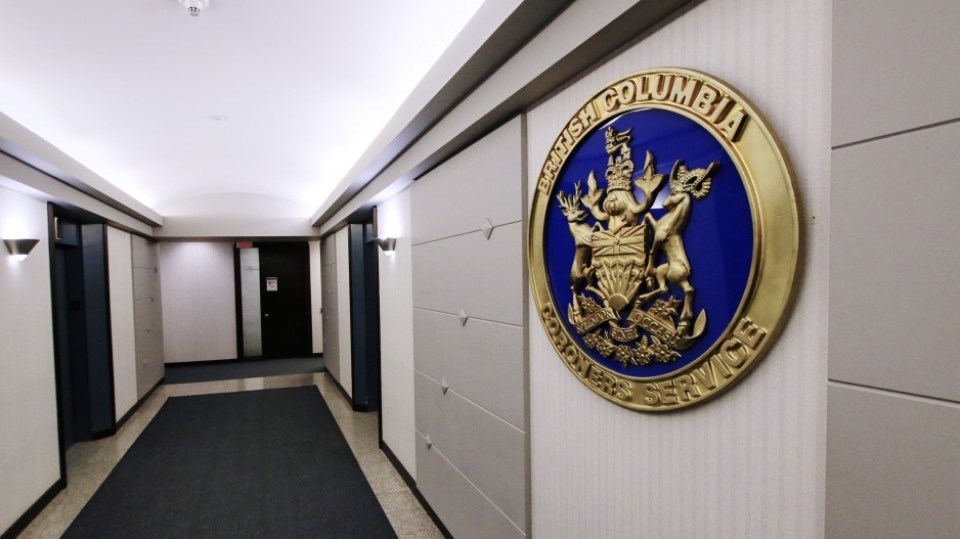Eight of the 12 recommendations made Wednesday by a jury after the inquest into the 2019 suicide of Const. Nicole Chan were directed to the Vancouver Police Department (VPD).
The five jurors heard evidence in Burnaby Coroners Court over seven days, beginning Jan. 23, into what led to the 30-year-old’s death. They spent a day deliberating on the verdict and recommendations.
To no surprise, they officially classified Chan’s death a suicide by loss of oxygen to the brain due to strangulation, sometime between midnight and 7:45 a.m. on Jan. 27, 2019 at her apartment in the Olympic Village area.
The jury’s mission was to find facts, not fault, and recommend ways to prevent a similar tragedy. To that end, the majority of recommendations stemmed from evidence of Chan’s decline in a toxic work environment at the VPD, where she complained to Chief Adam Palmer that two senior officers had exploited her sexually. One of them blackmailed her to have sex.
The rest of the recommendations were related to the lack of treatment from a specialized mental health unit at Vancouver General Hospital (VGH) on the final night of Chan’s life.
The jury suggested that everyone seeking a job as an officer undergo a mandatory psychological interview and that there be mandatory annual check-ins with a psychologist. That was based on evidence from VPD psychologist Dr. Randy Mackoff, who testified that he had reviewed Chan’s original psychological assessment during her application to become an officer, and that it “expressed 14 concerns where the average concerns would be five.” Among those concerns was a history of suicidal thoughts.
The jury cited the testimony of VPD labour and employee relations director Christine McLean, who stated that major crime units and forensic units get regular check-ins, but others do not.
“It is believed that such check-ins should be made available to all officers, all ranks and all sections,” said the jury’s statement, read by one of the jurors.
The VPD should also have a human resource or peer-support case representative assigned to regularly contact each employee suffering from mental health issues and, if permitted by the employee, the employee’s family and-or support circle could also be contacted.
Jurors recommended the VPD “ensure respectful workplace training is mandatory, rigorous, in-person and on a regular basis for all ranks of police officers” and that the force’s policies formally recognize rumours and gossip as unprofessional behaviour.
The jury also pointed to the dearth of training for officers in specialized roles, such that the VPD institute promotions-related administrative and management training, and specific training to officers in the human resources department.
The latter recommendation was sparked by the testimony of the two officers who drove Chan home from VGH on the last night of her life.
“Supt. Shelley Horne and Insp. Novi Jette, the HR officers, indicated they did not have any education in human resources management while being assigned to that section,” said the jury’s statement.
The jury also recommended that each section within the human resources department should work “interdependently rather than independently of each other.”
Three recommendations were directed to the access and assessment care centre (ACC) at VGH, where paramedics took Chan on Jan. 26, 2019 after a suicide attempt at her apartment. Despite the concerns of police officers and information gleaned from her by a paramedic, a psychiatrist at the unit declined to admit Chan to hospital under the Mental Health Act.
The jury recommended the attending doctor at ACC be in direct communication with paramedics, police officers and-or friends and family members in attendance. Both Jette and Const. Warren Head said that they unsuccessfully asked to speak to the psychiatrist, Dr. Kiran Sayyaparaju.
“At one point Insp. Jette and Dr. Mackoff were on the phone together and the phone could have been passed to that doctor, but communications did not occur between them,” said the jury’s statement.
The jury also recommended the ACC review the ability of physicians to access a patient’s history from all sources and that the ACC needs to ensure the attending doctor can take phone calls from community health-care providers.
“Dr. Sayyaparaju gave evidence that having more information regarding Ms. Chan's medical health history would have been beneficial for the assessment,” said the jury.
“We heard from both Dr. Mackoff and Dr. [Diane] McIntosh, that it is difficult for them to reach the attending physicians via phone.”
Finally, the jury wants Health Minister Adrian Dix to consider integrating a specific database containing medical records of patients who have had suicidal thoughts to be accessible across all health authorities. Sayyaparaju and social worker Monika Dewan testified they had access to two systems, but more systems would have been beneficial in Chan’s case.
Presiding coroner Susan Barth, in her charge to the jury on Tuesday, said the non-binding recommendations would be forwarded to Chief Coroner Lisa Lapointe for her to bring to the attention of those officials or entities named in the recommendations.
In a statement tweeted late Wednesday afternoon, Palmer said the VPD “will take time to review the jury’s recommendations.”
“We remain committed to ensuring Nicole’s death continues to lead to positive change within policing and for anyone struggling with their mental health,” said Palmer’s statement.
Palmer did not testify, but sent two lawyers to the inquest on his behalf. Former sergeants Dave Van Patten and Greg McCullough, the two subjects of Chan’s complaints, were not called to testify.
Editor's note: This article was updated to include a tweeted statement from VPD Chief Adam Palmer.
If you or someone you know is having thoughts of suicide, call 1-800-784-2433 (1-800-SUICIDE), or call your local crisis centre.






